Donald Trump’s election as president is an existential moment in American history. His candidacy, campaign, victory and actions halfway through the transition to governing, heretofore unimaginable, pose a genuine threat to the well-being of our country and the sustainability of our democracy.
As I write, the immediate concerns are the president-elect’s reactions to the Russian cyber attacks on the Clinton campaign; his refusal to takes steps to deal responsibly with the massive conflicts of interest his businesses pose to his conduct of his presidency; his designation of a prominent white nationalist as his chief political strategist and a trio of unlikely appointees to lead the National Security Council team in the White House who appear to lack the personal qualities essential to their critical role; a breathtaking contempt for the media evidenced by his refusal to hold press conferences and his Orwellian reliance on tweets and rallies to communicate with the public; and an assemblage of Cabinet nominees characterized mostly (though not entirely) by their inexperience in public policy and their contempt for the missions of their departments.
Change and disruption were the motif of the Trump campaign and his election by the Electoral College—even though resting on a mere 77,000 votes in three states and counterbalanced by a 2.8 million popular vote margin for Clinton—should be expected to presage discontinuities in process and policy. Elections matter. That said, our constitutional system provides an elaborate set of checks and balances designed to frustrate any would-be autocrat. The critical question is whether they and the essential norms that have in the past worked to make them effective, will be up to the challenge of a Trump presidency. Here I discuss briefly several key elements: the rule of law, a free press, an institutionally responsible Congress, a vigorous federal system, and a vibrant civil society.
Trump’s encouragement of the “lock her up” chants of his campaign rallies and threats of legal or violent retribution on individuals is chilling. The investigative and prosecutorial work of the Department of Justice is an essential bulwark against the misuse of public authority by any official, including presidents. Will its independence and integrity be protected by the new Attorney General and White House Counsel? Trump’s choice for Attorney General was rejected by the Senate for a federal judgeship because of racist comments and has a history as a prosecutor more interested in prosecuting African Americans for pursuing voting rights than those trying to suppress their votes. His White House Counsel was Tom DeLay’s ethics counsel and demonstrated a blatant disregard for the law as chair of the Federal Election Commission. The courts play an equally essential role. The egregious partisan politicization of judicial appointments, which reached a nadir with Senate Majority Leader Mitch McConnell’s unprecedented refusal to even consider Merrick Garland’s nomination to fill the Supreme Court vacancy during the last year of President Obama’s tenure, has weakened the capacity of the courts to fulfill its responsibilities in the face of attacks on the fabric of our democracy.
A free press was in Thomas Jefferson’s mind the single most important protector of individual freedom. Yet vast changes in the media and digital communications, and in the broader social and political environment in which they operate, have facilitated a post-truth world: fake news, no common set of facts, routine lies in public discourse, echo chambers reinforcing preexisting identities and views, an establishment media ever fearful of and compensating for charges of partisan bias. Trump adds to this toxic brew an apparent belief that the only accurate news coverage is that which is favorable to him. His continuing efforts to intimidate or ignore news organizations or reporters he disfavors is becoming the new normal in American politics.
Congress has the constitutional authority though not always the incentive to rein in wayward presidents. History offers up numerous examples of the first branch of government stepping up to its responsibilities in times of institutional threats or crises. That makes the silence of Republican congressional leaders to the frequent abuses of democratic norms during the general election campaign and transition deafening. The risk of party loyalty trumping institutional responsibility naturally arises with unified party government during a time of extreme polarization. A devil’s bargain of accepting illiberal politics in return for radical policies appears to have been struck.
The federal system has long offered solace to those fearful of a runaway government in Washington. States’ rights was often the clarion call of those resisting federal intrusions on racial segregation and limited government. Now the roles are reversed. Will state, metropolitan and local governments act to contain the gathering authoritarian strains in the federal government? To some extent, the answer is yes. California relishes its position as leader of the Democratic (and democratic) opposition. Metro areas are the site of impressive democratic collaboration, social diversity, innovation and economic growth. Local governments grapple with the problems and issues important to folks in their jurisdiction. Any yet the nationalization of elections and with it the rise of party-line voting has led to a majority of strong, unified Republican governments in the states, some of which have demonstrated little sympathy for the democratic rules of the game. For starters, think Kansas, Wisconsin, and North Carolina. The latter has just pulled off the most outrageous power grab in recent history, designed to reduce sharply the authority of the newly elected Democratic governor before he takes office.
The final wall of defense against the erosion of democracy in America rests with civil society, the feature of our country Tocqueville was most impressed with. Community organizations, businesses, nonprofit organizations of all types, including think tanks that engage in fact-based policy analysis and embrace the democratic norms essential to the preservation of our way of life. The objective is not artificial bipartisan agreement, but forthright articulation of the importance of truth, the legitimacy of government and political opposition, and the nurturance of public support for the difficult work of governance. It is in this sector of American society in which citizens can organize, private-sector leaders can speak up in the face of abuses of public authority, and extreme, anti-democratic forces can be resisted.
This discussion exhausts neither the serious concerns about the impending Trump presidency nor the sufficiency of forces available to contain the damage. Passivity will not do. Vigilance against every threat to the fundamental nature of the republic is the order of the day.
The Brookings Institution is committed to quality, independence, and impact.
We are supported by a diverse array of funders. In line with our values and policies, each Brookings publication represents the sole views of its author(s).

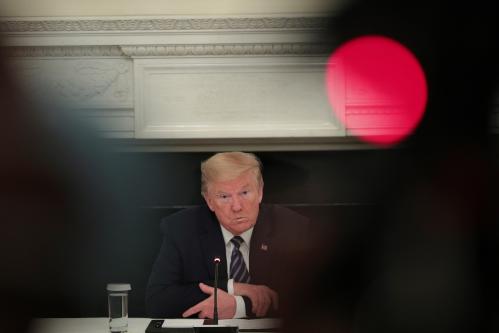
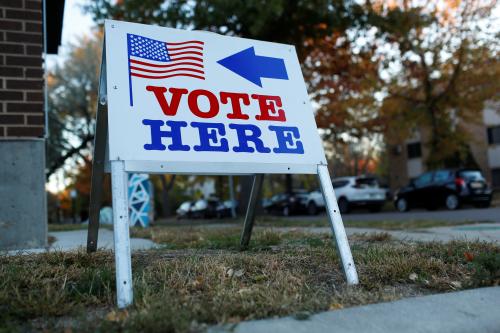
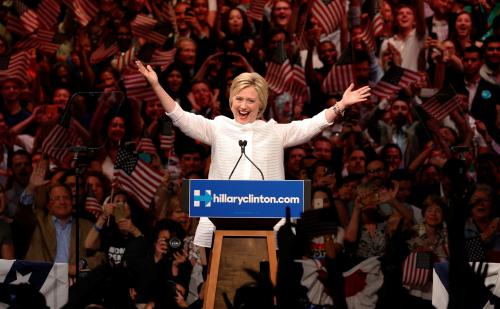
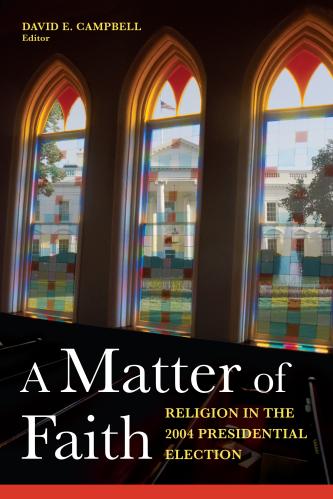

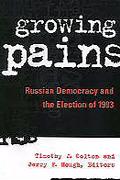



Commentary
Trump, no ordinary president, requires an extraordinary response
December 20, 2016